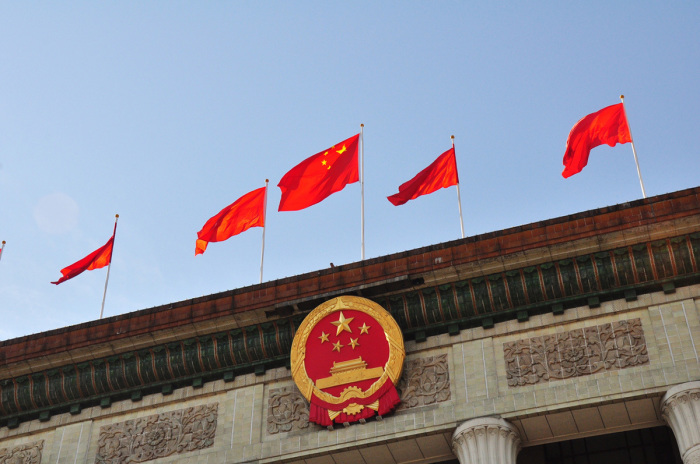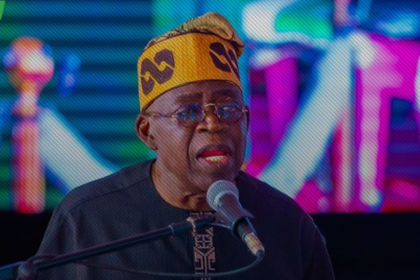
China has been named the world’s lead executioner in Amnesty International’s annual report on global capital punishment, which estimated that thousands were put to death in the country in 2024. The watchdog said China’s secretive practices, combined with ongoing religious persecution, set it apart even from countries with record-high confirmed execution counts.
Amnesty recorded at least 1,518 executions globally in 2024 — the highest number in a decade and a 32% increase from the previous year. The figure does not include executions in China, North Korea and Vietnam, where the death penalty is widely believed to be used extensively, but government secrecy prevents verification.
China’s opaque death penalty system, coupled with its persecution of religious minorities, including Christians, Uyghur Muslims and Falun Gong practitioners, places it at the center of global human rights concerns.
The report identified China as one of the countries that extensively uses the death penalty, including for drug-related offenses, and accused its government of executing religious minorities to harvest and sell their organs.
China also continues to detain millions of Uyghur Muslims in camps.
Amnesty said drug-related executions made up over 40% of all executions in 2024 and listed China among the countries responsible. Along with Iran, Saudi Arabia, Singapore and Vietnam, China carried out death sentences for narcotics offenses, which Amnesty considers unlawful under international law.
The human rights group noted that such penalties disproportionately affect those from disadvantaged backgrounds and have no proven impact on drug trafficking.
Despite China’s refusal to disclose execution data, its position in the report was unambiguous. Amnesty described the country’s continued use of the death penalty as extensive and secretive, a practice that prevents international accountability and skews the global understanding of capital punishment trends.
About the rest of the confirmed executions, Amnesty said Iran, Saudi Arabia and Iraq accounted for more than 90% of the documented executions.
Iran alone executed at least 972 people — nearly two-thirds of all known executions globally — while Saudi Arabia carried out at least 345, more than doubling its total from the previous year. Iraq quadrupled its executions to at least 63.
Amnesty noted that Iran continues to suppress religious dissent under the guise of national security. Converts from Islam, particularly to Christianity, are labeled threats and targeted accordingly.
The Iranian regime also executed individuals connected to the Woman Life Freedom protests, including a 23-year-old with a documented mental disability, following what the group described as unfair trials and coerced confessions.
Saudi Arabia used capital punishment to silence political dissent and punish members of the Shi’a Muslim minority who participated in protests from 2011 to 2013. The execution of Abdulmajeed al-Nimr in August 2024 was cited as an example. Although initial court documents linked his case to protests, the government reframed the charges as terrorism-related.
Blasphemy and apostasy remain capital crimes in Saudi Arabia. Public worship of non-Islamic faiths is banned, and any deviation from state-sanctioned Islamic practice is monitored. Despite official statements on reform, the kingdom surpassed all previous records with its 2024 execution count.
In Malaysia, reforms enacted in 2023 led to over 1,000 death row inmates, many convicted on drug charges, being spared execution. Zimbabwe also signed a bill in 2024 abolishing the death penalty for ordinary crimes. Several other African nations have moved in the same direction since 2021.
Despite the surge in executions, Amnesty said only 15 countries were confirmed to have used the death penalty in 2024 — the lowest number on record for the second consecutive year. A total of 145 countries have now abolished capital punishment in law or practice.
The United States remained the only Western democracy to carry out executions, recording 25 in 2024, a slight increase from 2023.
Four U.S. states resumed executions after long gaps: South Carolina, Georgia, Utah and Indiana. Alabama tripled its execution count and used nitrogen gas as a method, prompting U.N. monitors to warn that suffocation by nitrogen hypoxia could amount to torture.
The overall increase in executions was concentrated in authoritarian states where the death penalty was used to maintain control and silence dissent. Amnesty stated that secrecy continued to prevent full scrutiny in countries like China, where executions are treated as state secrets and exact numbers remain unknown.
While Amnesty noted an alarming use of the death penalty for political suppression and religious persecution in several countries, it also cited international progress in abolition efforts.
In 2024, more than two-thirds of U.N. member states voted for a moratorium on capital punishment, and campaigns led to high-profile reversals of death sentences.








